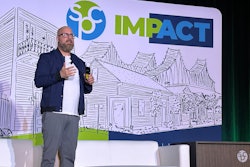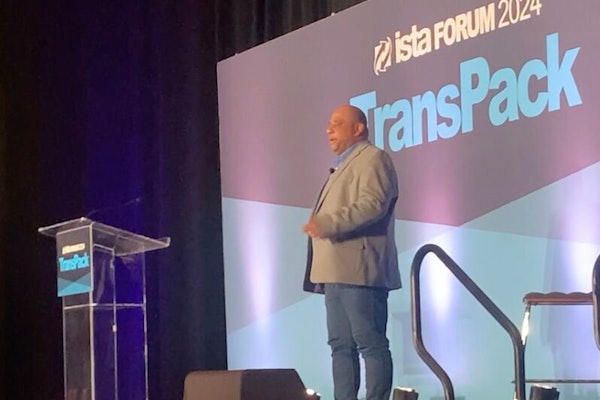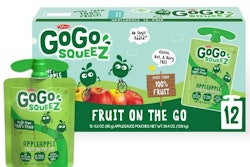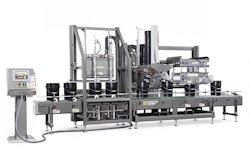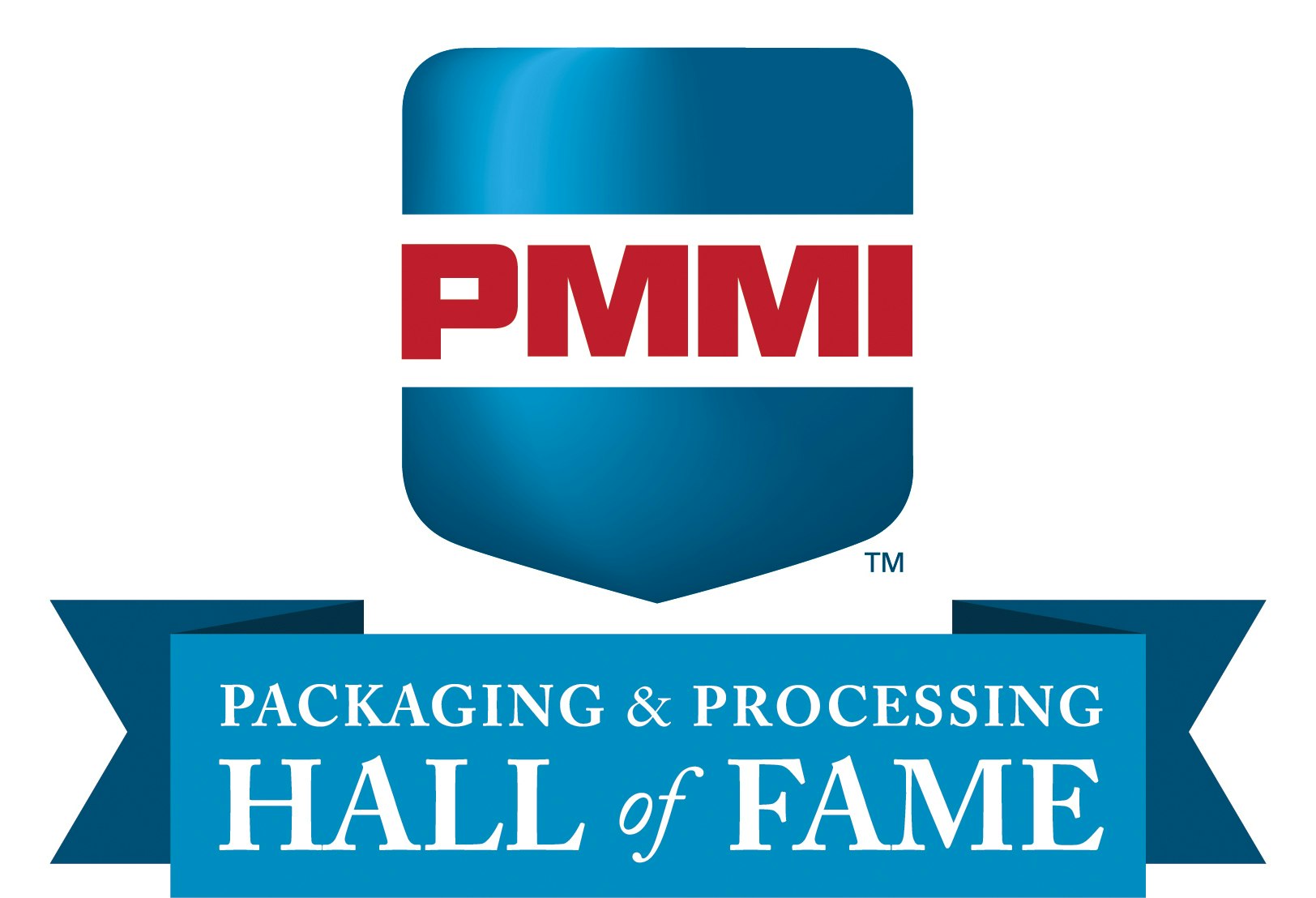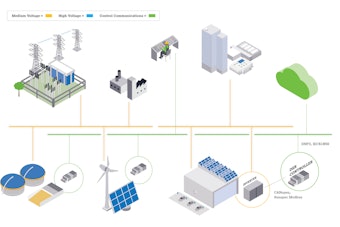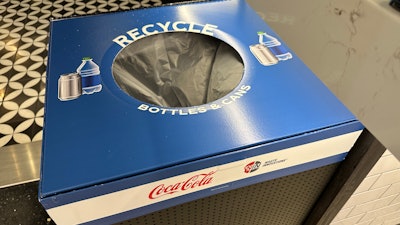
Two weekends ago, I was one of thousands of fans in attendance in one of four NCAA Sweet 16 venues in hopes my team would make it to the promised land—the Final Four, held this past weekend and concluding tonight. I left Boston’s TD Garden predictably disappointed, with my beloved Illini having been decidedly blown out by UConn.
But between the Huskies’ prolific scoring runs, I noticed that Coca-Cola had put considerable effort into arena concessions and container disposal messaging, clearly marking recycling bins for collecting plastic bottles and aluminum cans throughout the venue’s concourse. Strong messaging about circularity extended beyond the bins themselves, as an on-premises task force (I later learned these were called "green teams") of people dressed in Coke garb helped to educate event attendees about recycling and circularity—more specifically, explaining which bin they should use for their plastic or aluminum beverage containers.
It turns out that the Sweet 16 efforts I witnessed were just a precursor, laying the groundwork for an all-out effort by Coke throughout the NCAA Men’s & Women’s Final Four. Coca-Cola and its regional bottlers happen to partner with both men’s and women’s Final Four venues this year—Phoenix’s State Farm Stadium for the men, and Cleveland’s Rocket Mortgage FieldHouse where South Carolina outlasted Iowa yesterday in the women’s championship. With partnerships at both venues, this represented a unique opportunity for Coke. Since the Final Four is one of the biggest stages in sports, the company saw a chance to put a national spotlight on recycling, showing that really works.
“We've tried to use the Final Four as our flagship moment to demonstrate the work we're doing around sustainability, because it is such a big cultural event throughout North America, and quite honestly, and we know there's a lot of people who are watching,” Alex Nicolaou, director, Sustainability, Customer Stewardship, North America, told me today. “We think it's a good chance for us to show how we are trying to lead within this space.”
Coke’s Final Four recovery and recycling program
According to Coke, all PET beverage bottles and aluminum cans collected for recycling during the Final Four, either in Phoenix or Cleveland, will be recycled and remade into new, food-grade post-consumer packaging. This may have already been true for these venues. More likely, it was aspirationally true, with significant leakage into incorrect channels, or contamination into the single recycling channel. There was no way for consumers to know either way, as such programs are rarely audited for performance and stream dependability. The resulting ambiguity around recycling at sports arenas and concert venues has contributed to consumers’ wider distrust for recycling, and disbelief that recycled materials could end up anywhere else but landfill.  Infographic explaining the certified closed-loop circular plastic and aluminum waste system at play in Cleveland and in Phoenix for the Final Four.
Infographic explaining the certified closed-loop circular plastic and aluminum waste system at play in Cleveland and in Phoenix for the Final Four.
"And the truth, is the metrics that we see today don't support that much the material leaving commercial venues are getting turned back into new bottles and cans. In many cases, we're actually seeing they're not getting recycled because something is not working, there's some breakdown in the value chain," Nicolaou says.
With this captive-audience Final Four campaign, Coke seeks to win back trust in recycling by officially certifying, through a third-party auditor, that every bottle or can that a fan properly recycles at the games will indeed become food-grade packaging again.
How can the brand owner make that promise, and how can Coke overcome this entrenched distrust? The brand owner partnered with Circular Solutions Advisors to validate the recovery system and ensure a “best-in-class recycling infrastructure” has been in place at these two tournament venues. Circular Solutions Advisors has been collaborating with local materials recovery facilities (MRFs) and PET reclaimers in Phoenix and Cleveland to significantly boost the amount of material collected. In Phoenix, the target MRF is WM (formerly Waste Management), and in Cleveland, it’s Republic Services.
To perform the validation, Circular Solutions Advisors completed an analysis of the entire recycling stream, from the appearance of the recycling bins to the process getting them and their contents through housekeeping, all the way to the transfer of collected material to haulers to get recyclable content to the MRF. Circular Solutions Advisors “identified a good pathway” to ensure that all that material could really become food-grade material once again—the third-party auditor even directly handles trading that material back into the system.
“With that pathway in place, knowing that we have that closed loop now certified by Circular Solutions across both of those venues, we're trying to make sure that we can both tell the story that this is actually in place with these partners, and also ensure that anyone who's at the games have the opportunity to recycle, knowing that that bottle or can will become new packaging once again,” Nicolaou says. “Our first big focus was making sure that we do have that that loop closed at these venues, which we’ve been able to achieve. Now, we want to tell that story, and make sure people feel comfortable drinking our drinks knowing that that package will be going somewhere to become packaging again. And we can prove that to them.”
Messaging on recovery bins
Sports stadiums and concert arenas are great laboratories for consumer behavior around recycling or other sustainability-minded consumer pushes. Coke’s and Circular Solutions Advisors’ strategy was to be extremely clear what could be recycling in the recycling bins—a relatively narrow band of PET plastic and aluminum—while communicating that everything else should go into the landfill or trash stream.
“We work with our partners and provide best practices, and when it comes to bin messaging, we highlight what can go into the recycling bin specifically, and we’re very clear that everything else needs to go into the other bin, which is a waste or a landfill stream,” Nicolaou says. “The messaging aims to make sure that people know that in the recycling bins really should just go the bottles and the cans.”
In some places, PET beer cups are recyclable. But that’s not uniform across North America right now, so in many cases, it's just the cans and the PET bottles that get recycled. To ensure the cleanest possible bales with the least possible contamination, imaging and messaging focus on bottles and cans only, not cups. Recycling is a game of tradeoffs, and greater inclusivity at collection invites contamination down the road, jeopardizing eventual end markets. This campaign's approach, focusing on bottles and cans, was on the exclusive side of the continuum, ensuring the cleanest possible stream is being hauled to MRFs.
“For this program, knowing that we have the closed loop on the cans and the bottles, we've been working with our partners who run these venues to make sure that the messaging at least clearly calls out that those two things can go in the recycling bin: cans and bottles. We then have some messaging on the other side, on the trash bin, to say ‘put everything else here.’ That way we keep some of the food waste and scraps, things that contaminate recycling streams, out of the recycling side. That way, when that recycling stream gets hauled away to the MRF, they have enough clean recycled material in there that it's easy for them to sort out the rest of the of the contamination and move that material on into food grade.
Nicolaou continues, “The name of the game is to make sure that we make the MRFs’ lives as easy as possible, and the material is as economically viable for them to actually go and return that into food grade in the future."
Closed loop isn’t closed to Coke only
Most of the Coca-Cola packaging entering the two venues’ respective waste streams have been 20-oz PET or rPET bottles of the Coca-Cola family of carbonated beverages. Monster energy drinks in a 16-oz aluminum format, as well as 100% rPET Dasani water bottles, have also been available.
It’s worth noting, though, that this validated closed-loop system doesn’t discriminate between Coke PET, Coke aluminum, and the same containers baring competitors’ logos. For instance, beer sold in aluminum cans, not a Coca-Cola product, will undoubtedly comprise a significant portion of the expected Final Four recycling stream at these venues.
“If people are drinking beer cans, for instance, and those end up in the recycling bin, they will also be entering into the closed loop as well,” says Nicolaou. “The system should be capturing all PET and all aluminum from the stadium.”
Also noteworthy is that, within this closed-loop system, Coca-Cola does not maintain a chain of material custody once it enters the collection bins. Coke’s not looking to secure for itself or its bottlers a high-quality feedstock, nor have they taken any measures to be sure they or their bottlers end up benefitting from the valuable PCR that is recovered. Once materials are collected at the venues, haulers carry the PET and aluminum to WM and Republic’s respective tipping floors, co-mingled with all other collected materials. Once there, it’s up to those MRFs and their near infrared or AI-assisted sortation mechanisms to ensure the material is available to reprocessors as high-quality baled material, then available to the food and beverage industry writ large. But Circular Solutions Advisors certifies that this content indeed makes it through to become packaging again.
“The work we're doing with Circular Solutions ensures that we are providing an end market for that material, by trading that back into food-grade processors in the future. That's Circular Solutions’ real bread and butter work, trading material to be food grade once again,” Nicolaou says. “by doing that, and not having to actually own the system ourselves, it allows for this process to continue into the future, beyond the Final Four. We're creating a good system, and proving that a good clean stream is consistently going to come from these venues over time. That the recycler is more likely to continue turning this material into food grade in the future because they feel good that the material coming from these properties is uncontaminated and easy for them to turn into a profitable commodity they can sell.”
It bears mentioning, though, that Coca-Cola would be one of those food-grade PET end markets seeking that material from reprocessors. A major "back-end" element of this campaign is creating profitable end markets for MRFs to sell PCR materials, and Coke says its traders will be on the ball looking for high quality PCR from these streams as well as any others, contributing to an economically viable, self-sustaining system.
Campaign facts and figures from Coke
FROM RELEASE: With the venues having a certified closed loop for beverage packaging, Coke says this Final Four Campaign will result in driving a circular economy, as well as 160,000 lb. of beverage bottles and cans estimated to be "upcycled" into new beverage packaging. The first step has been diverting beverage packaging away from landfills to be recycled into new products. This specific project coincides with The Coca-Cola’s World Without Waste, in its specific goal of collecting and recycling a bottle or can for every one the company sells by 2030.
During this year’s NCAA Men’s & Women’s Final Four events:
○ Over 200 additional recycling bins will be installed to increase access and encourage easy recycling.
○ Green Teams will help fans remember to throw their bottles and cans in a recycling bin when finished. Fans can also be on the lookout for recycling reminders that explain how their bottles and/or cans that are placed in recycling bins will be recycled into the circular economy.
○ Fans will have an opportunity to stop by The Coca-Cola Company’s Recycle for merchandise activation to recycle their bottles and redeem merch.
○ Coca-ColaTrademark and DASANI 20-oz 100% recycled plastic bottles (excluding cap and label) will be available for fans to stay refreshed.
○ Fans can place their beverage bottles and/or cans in the “Who’s Your Champion” recycling bin, with four-slot options where fans can toss their recyclables in the bin that represents their favorite to win the tournament.
○ State Farm Stadium and Rocket Mortgage FieldHouse are pioneering the future of sustainable sporting events, maintaining their status as certified closed loop for beverage packaging beyond this year’s NCAA Champions have been crowned. The venues are just two of more than 90 properties, including universities, live entertainment venues and more, that will become certified this year. PW

